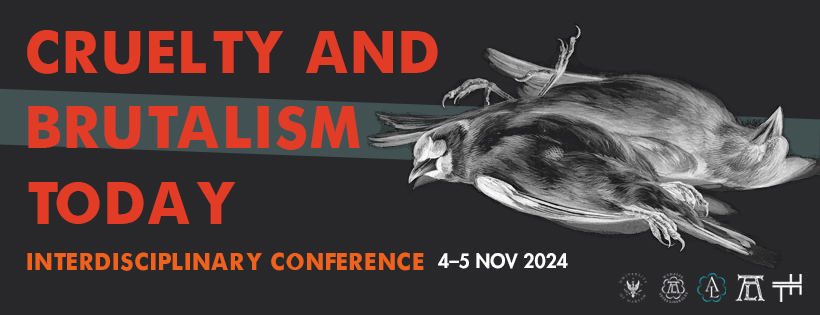Paweł Dybel
(Polish Academy of Sciences)
Abstract:
In my presentation, I will raise the question of the status of the phenomenon of cruelty in art considered in the context of the transformations that occurred in modernity in terms of man’s relationship to natural being. The effect of these transformations was a manipulative and domineering attitude of man towards this being. In it, it was – according to Heidegger – reduced to the role of a “storehouse” (Ge-stell), that man takes upon himself in an effort to exploit it to the maximum for himself. I call this attitude ontological cruelty. At the same time, I ask whether the transformations that have taken place in contemporary art under the influence of avant-garde theories correspond with these transformations? I try to demonstrate that this kind of analogy does not occur, because the representations of artworks are characterized by a completely different attitude to being since they are based on its “affirmation”, not exploitation. However, the space of creative freedom opened by the avant-garde in relation to the material of the work of art prompts to raise a different kind of questions about the status of cruelty in art. I ask these question by considering the surreal world of female doll bodies in the work of German artist Hans Bellmer. This is a remarkable example, because in this work female bodies of dolls created by him undergo profound deformations in his artwork. They are mutilated in various ways, metal and wooden prostheses are attached to them, and so on. The question that arises is: what is the actual status and meaning of these deformations? What is the peculiar kind of aesthetic “cruelty” behind them?
Bio:
Paweł Dybel – Professor at the Institute of Philosophy and Sociology PAN Warsaw. Philosopher, literary critics, historian. Main areas of interest: modern philosophy (hermeneutics, phenomenology, poststructuralism), psychoanalytic theories, theory of literature and art, history of Polish psychoanalysis. Scholarships: Alexander von Humboldt Stiftung, The Kosciuszko Foundation, Thyssen Stiftung, DAAD, DFG, The British Academy, The Mellon Foundation a.o. Visiting Professor at: University of Bremen (1993, 1995); Humboldt University Berlin (1996); University Siegen (1997); University Würzburg (2004, University at Buffalo Institute of Sciences of Man, Vienna a.o. From 2020 member of Scientific Council at “Sigmund Freud Institute” in Frankfurt am Main. Books (selection): Painting with a Body. The Philosophy of Painting by Merleau-Ponty, Gdańsk 2012 (Pol.), The Faces of Hermeneutics, Universitas, Krakow 2012 (Pol.), Gadamers Thought on Art., Akademia Sztuk Pięknych, Gdańsk 2014) (Pol.); Psychoanalytische Brocken. Philosophische Essays, Königshausen & Neumann, Würzburg 2016 (Ger.), Psychoanalysis –the Promised Land? The History of Psychoanalysis in Poland (1900 – 1918) Vol. 1 Peter Lang Verlag Berlin – New York – Oxford 2020 (Eng.), Subversive Lectures (I.Kant, H-G.Gadamer J.Derrida, J.Lacan a.o.) Universitas Krakow 2022. Grants: 2013-2014 co-director of grant „Psychoanalyse und Hermeneutik” (together with prof. Hermann Faller, prof. Hermann Lang, prof. Heinz Weiss) cooperation between Polska Akademia Nauk and Deutsche Forschungsgemeinschaft. 2016-2019 co-director of Polish – German grant (together with Ewa Kobylinska-Dehe) „Geschichte der Psychoanalyse in Polen im Kontext des deutsch-polnisch-jüdischen Kulturdreiecks.” Financed within the frames of „Institutionspartnerschaft” Alexander von Humboldt Stiftung. Cooperation between Pedagogical University in Kraków and International Psychoanalytic University in Berlin.
